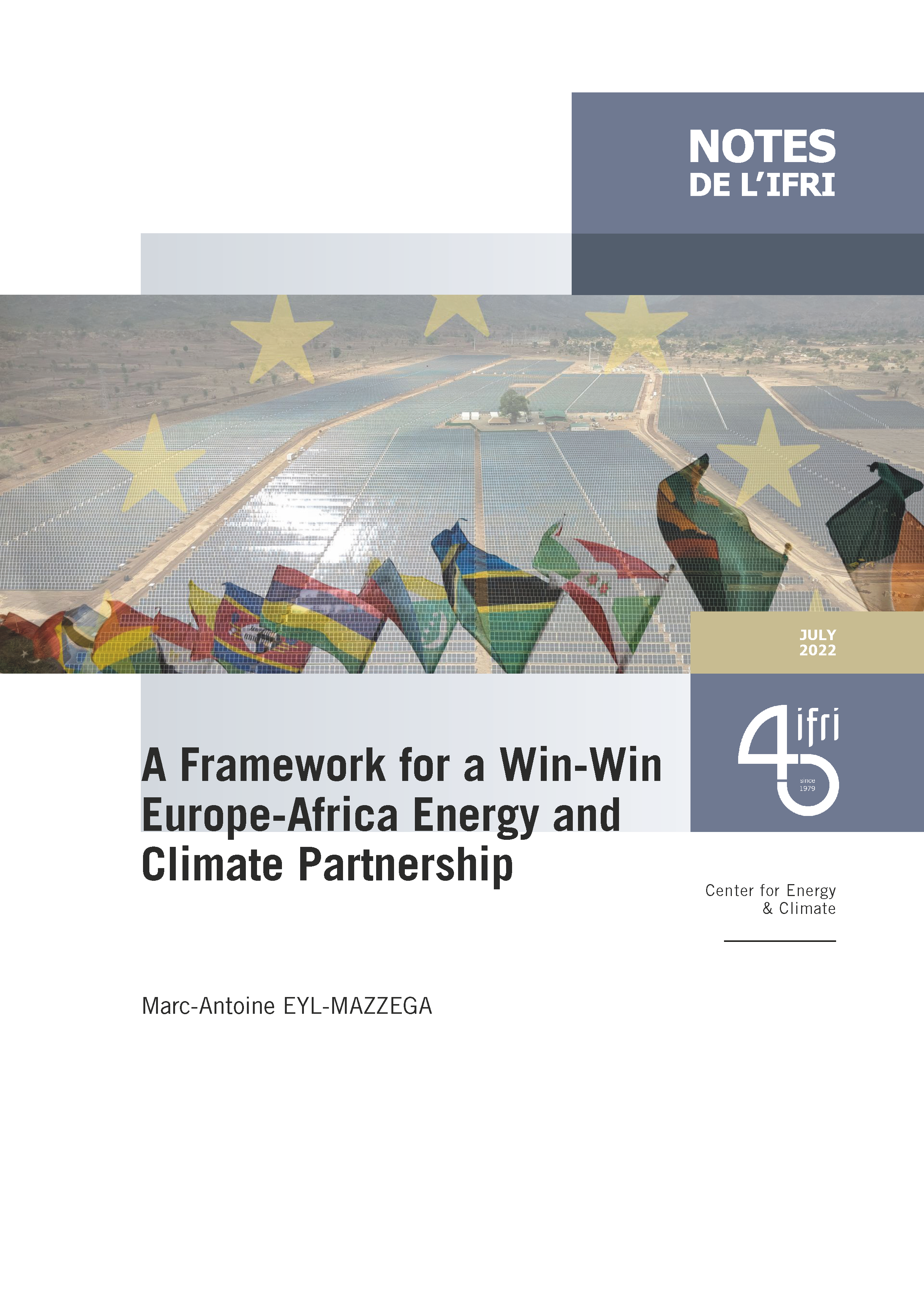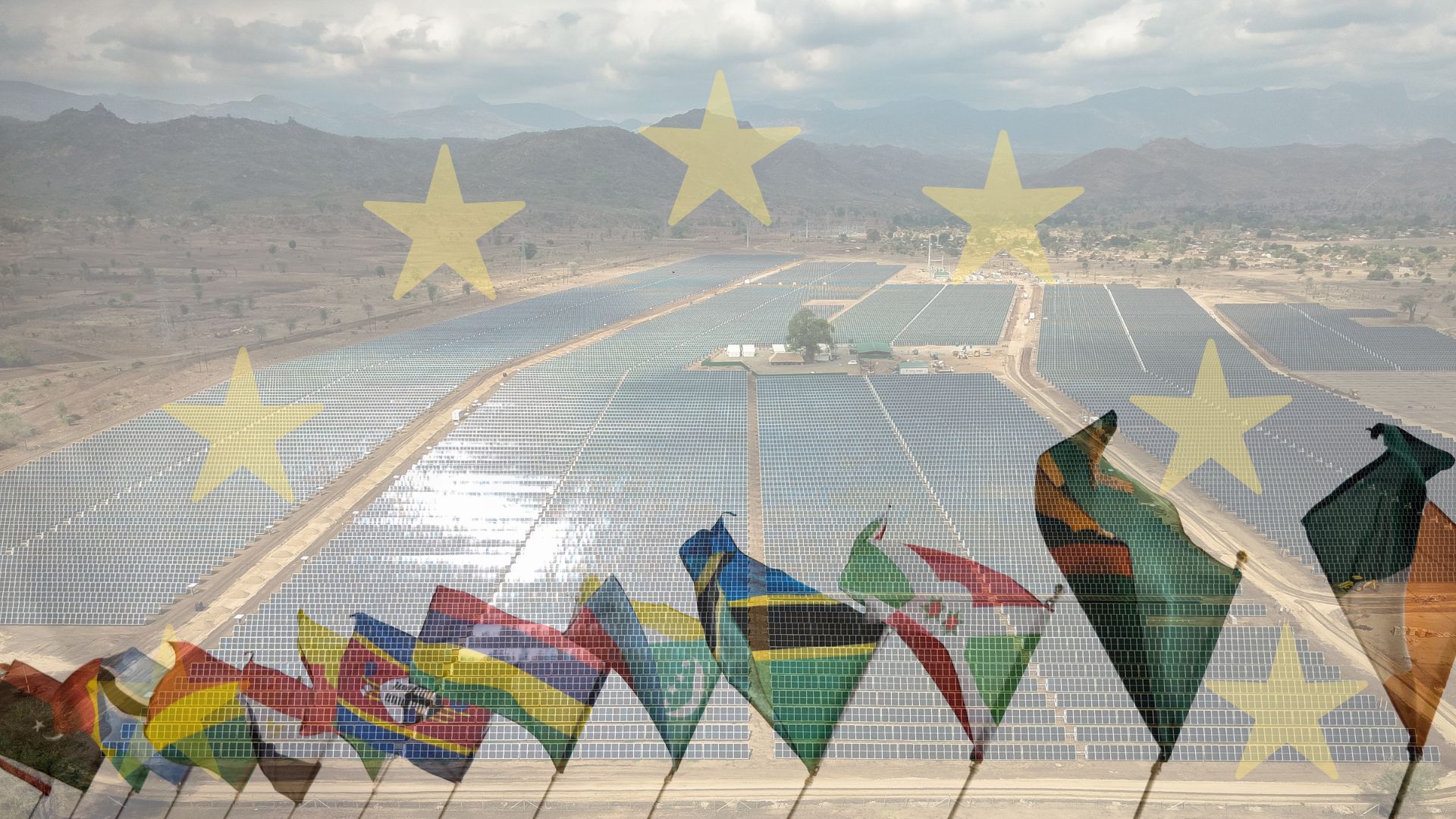A framework for a Win-Win Europe-Africa Energy and Climate Partnership

North-South tensions are exacerbated at a time of unprecedented turmoil for both Europeans and Africans. European polycrises (geopolitical, energy-related and economic) echo the systematic vulnerability of Africans, which is reinforced by external shocks.

Following a dialog of the deaf, with rising discontent, tensions, and misunderstandings on both sides, there is now a new phase of discussion, coordination, and cooperation to achieve very concrete, high-impact actions. Europeans and Africans need each other to advance the European energy transition on the one hand and make decisive and rapid progress toward achieving the SDGs on the other. The urgency and issues at stake are such that this opening window to change the dynamics and achieve major and rapid advances should not be missed. Key priorities for action include debt restructuring, reinforcing funding, de-risking investments into SDGs segments, new priorities for the energy and mining sectors, and fostering private investment.
There has been progress on financial and economic issues at recent COPs, and at the June 2023 summit in Paris, calling for a New Global Financial Pact. But Europeans still need to reconsider and consolidate their approach to hydrocarbons, electricity, mining, and biodiversity, taking into account the expectations and needs of the countries concerned. The widespread electrical and energy poverty in sub-Saharan Africa is a mounting factor of instability and now requires a breakthrough and a careful balance between fossil fuels and low-carbon solutions. Would sub-Saharan Africa develop as Europe, Russia, China, or the United States did in the 20th century, all efforts to preserve the planet would be vain.
In the electricity sector, given the immense hurdles that lie ahead, a key issue at stake is to de-risk investments, strengthen concessional finance and target it more effectively. Tools can be put in place quickly. States, for their part, need to strengthen their regulatory frameworks and modernize their national companies. Networks are a weak link and deserve to be supported by international financial institutions.
In the field of hydrocarbons, where major upstream activity is taking place, increasingly to the benefit of resource holding nations, the challenge is to avoid any new resource curse, to multiply development opportunities, and to minimize social and environmental impacts. Solutions do exist, and all actors must now assume their responsibilities.
The mining sector requires infrastructure of all kinds, as well as the progressive implementation of demanding ESG criteria to protect the environment and workers, while fostering local and national development. Europeans need to mobilize capital, build industrial alliances, help train workforces, and structure win-win projects which create jobs and infrastructure.
In the field of biodiversity, a huge opportunity for action and development is opening up, provided that the integrity of certification mechanisms and governance at the local level are strengthened, involving all stakeholders in a transparent way.
The energy transition envisaged in Europe is in no way transposable to sub-Saharan Africa, where the main challenges concern access to affordable energy and clean cooking, development, youth employment, and adaptation to climate change. A challenge for Europeans is to speed up processes and reinforce the ability to accompany multidimensional projects, and not to be too prescriptive, so as not to lose influence and attractiveness further. The taxonomy, non-financial disclosure rules, or ESG criteria matter of course, but require some flexibility, and to be included in a process or progressive convergence. Priorities should be refocused on rapidly ensuring overall access to clean cooking, which is the mother of all battles and a key to development and environmental preservation. All the required technologies and solutions are available, and Kenya, alongside a few other countries in the region, showcases strong progress. With relatively modest resources, this existential challenge could be decisively addressed. Then comes the issues of transmission and distribution grids, and the wider infrastructure. Against this backdrop, providing public support for hydrogen export projects in the region appears less of a priority for European capitals at this stage.
Finally, the success of the current re-engagement between Europeans and Africans will very much also depend on the European Union’s ability to foster the decrease of its greenhouse gas emissions so as to make room for the inevitable rise of emissions in sub-Saharan Africa. Countries in the region need to improve governance and their investment frameworks to foster inclusive, sustainable, and stable economic growth and development, and avoid that all stops soon again. Yet these governments also need to raise the same demands and issues of climate justice to China, Russia, Middle East, or North American countries, which are the world’s largest polluters and are less committed than is Europe.
Download the full analysis
This page contains only a summary of our work. If you would like to have access to all the information from our research on the subject, you can download the full version in PDF format.
A framework for a Win-Win Europe-Africa Energy and Climate Partnership








